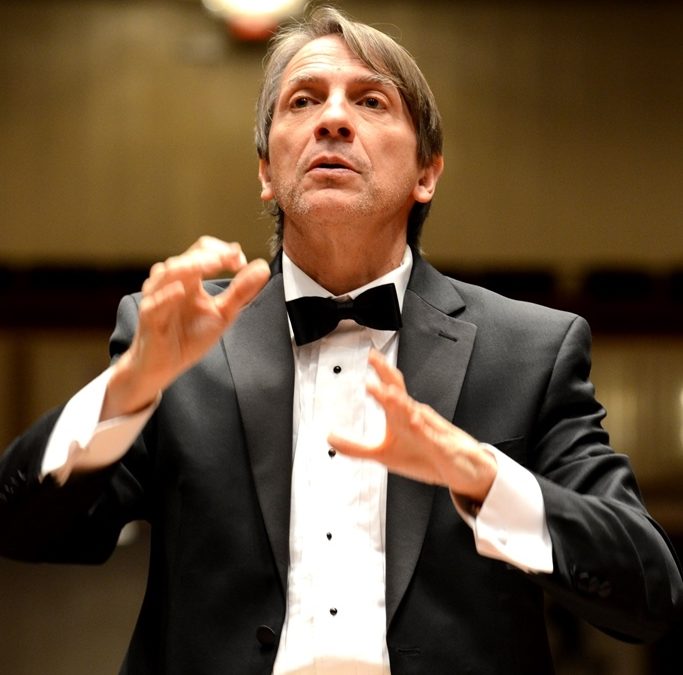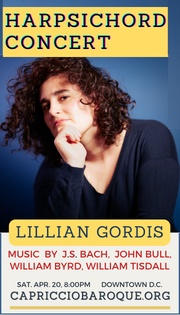Washington Choral Arts delivers a powerful Mozart Requiem

Scott Tucker conducted the Choral Arts Society of Washington in Mozart’s Requiem Sunday at the Kennedy Center.
The Choral Arts Society of Washington built its concert at the Kennedy Center concert hall Sunday afternoon around Mozart’s Requiem mass, which formed a somewhat apocryphal backstory in the 1984 film Amadeus. While several questions remain surrounding Mozart’s final work, it was his student Franz Xaver Süssmayr, not the film’s protagonist, composer Antonio Salieri, who is credited with finishing the Requiem.
Addressing the question of where Mozart finishes and Süssmayr begins, Choral Arts artistic director Scott Tucker preceded the Requiem by addressing the audience about the controversy and alluding to the film’s inaccuracies. To emphasize that Mozart’s handwriting in the manuscript ends in the Lacrimosa, Tucker, before beginning the full Requiem, led the Choral Arts chorus and orchestra in the Lacrimosa’s first three lines, ending abruptly with the words “homo reus,” after which Süssmayr presumably took over. Tucker told the sold-out audience that eyewitnesses said the text—“That day is one of weeping, on which shall rise again from the ashes the guilty man, to be judged.”— so moved Mozart he was unable to finish composing. Mozart died shortly after that, or so goes the romantic version of the story.
After the introduction, Tucker led a performance of the Requiem that was precise and abundantly muscular. Nearly 200 singers strong, the Choral Arts chorus is a potent force that begs to be used judiciously. Tucker fulfilled the louder sections of the Requiem with volume to spare–though passages marked forte in the score sounded fortissimo to the ear. The chorus was in splendid voice, despite a few moments when lines sounded a bit muddy.
Overall the Requiem seemed to be pounded with power rather than sweetly performed. There were times when the chorus sang softly and with passion—the Sanctus and the Agnus Dei, for example—but the emotional charge of the music was fitful at best.
The vocal joys this afternoon were reserved for the strong soloists. Bass soloist Wei Wu’s opening words in the “Tuba mirum” resonated throughout the hall and mezzo-soprano Allegra De Vita’s brief solos, on “Judex ergo cum sedebit,” for example, were delivered with a pretty sonority. Matthew Loyal Smith provided his usual smooth tenor and Yuanming Song contributed a lofty if slightly flat soprano. Some of the concert’s most musical moments occurred when the soloists sang together.
J.S. Bach’s Jauchzet Gott in allen Landen, BWV 51, which led off the program, was offered as a tribute to the late J. Reilly Lewis, a Washington-based Bach specialist. Yet the performance was beset by balancing and intonation issues that would continue throughout the afternoon.
For Bach’s cantata, errant positioning was the culprit. Tucker placed trumpet soloist Thomas Cupples at the front of the stage, right of the conductor’s podium; to Tucker’s left was soprano soloist Song. Unfortunately she was unable to project over Cupples’ piccolo trumpet, although Cupples provided some of the finest playing of the afternoon, his tone brilliant, his phrasing deft, and his attacks sure. (Oddly there was neither a biography of Cupples, a National Symphony Orchestra member, nor a mention of his name as the trumpet soloist in the program.) Song fared far better in the composition’s middle movements, where her accompanists were cellist Mark Evans, bassist Ira Gold and organist Brandon Straub.
Tucker, a proponent of new music, led the world premiere of Jake Runestad’s Ave Verum, a Choral Arts commission designed to precede Mozart’s Ave Verum Corpus, K. 618.
The brief composition is written to a text by poet Todd Boss that imagines Mozart hearing his K.618. Scored for string orchestra and chorus, it begins with a series of soft, slightly dissonant chords, eventually moving to more traditional harmonies. The chorus floated an otherworldly sound that mixed well with Runestad’s instrumental lines. The spirit and sound of the composition provided a seamless transition to Mozart’s Ave Verum Corpus, which Tucker proceeded to after a brief pause.








Posted Apr 24, 2017 at 3:33 pm by Maureen Wesley
“The emotional charge of the music” struck this attendee as formidable. And I think that’s how most of the audience felt during the Requiem…during the “sweet” as well as the power portions. What privilege to be able to experience this jewel so beautifully presented.
Posted Apr 24, 2017 at 4:54 pm by Jason Parker
Pretty thorough description!